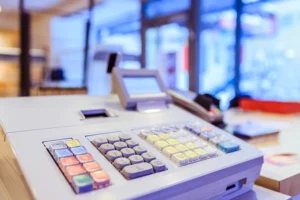Understanding the Effect of State Trading Organizations
State Trading Organizations (STOs) are a critical component through which legislatures participate in worldwide exchange. Not at all like confidential undertakings, these associations are either possessed or vigorously managed by the state, giving them novel benefits and obligations in the worldwide market. This article digs into the job, works, and effect of STOs, making sense of how they shape public economies and impact worldwide exchange elements.
What Are State Trading Organizations?
STOs are government-controlled substances that oversee exchange exercises like imports, commodities, and, surprisingly, homegrown circulation of merchandise. They may either have a restraining infrastructure over specific areas or work close to confidential organizations. Commonly, STOs are laid out to serve key public interests, for example, guaranteeing food security, settling product costs, or elevating ventures basic to monetary turn of events.
For example, a STO could deal with the import of fundamental merchandise like oil, wheat, or clinical supplies, guaranteeing that these items are accessible in any event, during seasons of monetary flimsiness or worldwide deficiencies. Now and again, they could likewise be entrusted with sending out public assets, assisting the country with procuring unfamiliar trade and deal with its equilibrium of installments.
Goals of State Trading Organizations
The essential objectives of STOs rotate around the public interest. Probably the most well-known targets include:
Financial Steadiness: STOs can assist with safeguarding the economy from unstable worldwide economic situations by controlling the stockpile and cost of fundamental products. By controlling imports and commodities, they can protect homegrown ventures from unfriendly worldwide rivalry and cost vacillations.
Asset Allotment: Through focal control, STOs can guarantee that scant assets are dispersed impartially across various areas of the economy, advancing reasonableness and long haul maintainability.
Key Turn of events: Legislatures frequently use STOs to advance the development of specific ventures or areas. For instance, a STO could focus on the import of hardware required for homegrown assembling, encouraging industrialization and financial broadening.
Public safety: In situations where certain merchandise are basic to public safety, like energy, food, or military supplies, STOs guarantee that these products are accessible without disturbance, paying little heed to global economic situations.
Worldwide Exchange Relations: STOs can likewise be utilized as apparatuses in political and exchange discussions. By controlling the progression of vital commodities or imports, states can use their financial ability to get great terms in peaceful accords.
The Monetary Effect of State Trading Organizations
The job of STOs in impacting a country’s economy couldn’t possibly be more significant. Their activities can have both positive and unfortunate results, contingent upon how they are overseen and the areas they control.
-
Value Adjustment and Market Control
One of the principal benefits of STOs is their capacity to balance out costs, particularly for fundamental merchandise. For instance, in the rural area, numerous states use STOs to purchase crops from ranchers at ensured costs, forestalling sharp cost drops during seasons of excess and guaranteeing food security in times of shortage. This safeguards ranchers’ earnings and balances out the homegrown market, making food more reasonable for customers.
Also, STOs engaged with energy exchanging, for example, state oil organizations, can control fuel costs, protecting the nearby economy from worldwide oil cost vacillations. This dependability is significant for nations that are intensely dependent on energy imports or products.
In any case, cost adjustment endeavors can now and then prompt market shortcomings. At the point when STOs have a syndication over specific areas, they could smother rivalry and smother development. At times, state command over evaluating can contort the market, prompting deficiencies or excesses that hurt shoppers and makers the same.
-
Exchange Adjusts and Unfamiliar Trade
STOs that participate in send out exercises can fundamentally impact a nation’s exchange balance. For countries that depend intensely on the product of items, like oil, gas, or minerals, STOs frequently deal with these essential businesses. They guarantee that these assets are sold at ideal costs, assisting the country with procuring unfamiliar trade and keep a positive exchange balance.
Moreover, by dealing with the import of fundamental merchandise, STOs can assist with forestalling over the top spending on unfamiliar items, safeguarding public stores. For example, STOs might control the import of extravagance products or trivial things to safeguard the nation’s money and equilibrium of installments.
On the other side, when STOs are wasteful or tormented by defilement, they can turn into a channel on the economy. Unfortunate administration of commodities can prompt lost income, while failures in bringing in fundamental products could bring about deficiencies or expanded costs.
-
Modern Development and Advancement
STOs can assume a vital part in advancing modern development. By decisively overseeing imports, state run administrations can focus on the import of apparatus, innovation, and unrefined components expected to foster key enterprises. This has been a critical technique for the overwhelming majority of non-industrial nations. Where STOs have assisted cultivate the development of areas with preferring assembling, energy, and foundation.
In any case, there are gambles related with over-dependence on STOs for modern turn of events. If state-run associations overwhelm specific areas, they might restrict private area cooperation, lessening contests and advancement. This can dial back monetary development in the long haul, as state-controlled undertakings might miss the mark on proficiency and pioneering drive of privately owned businesses.
Worldwide Exchange and Political Influence
Past their homegrown effect, STOs likewise assume a part in forming global relations. Nations with enormous STOs frequently use them to attest financial effect on the worldwide stage. For example, oil-delivering countries habitually utilize their state-run oil organizations to control worldwide stockpile and costs, giving them influence in discretionary talks.
Additionally, nations that depend on imports from STOs can be affected by profession approaches. For instance, a sending out nation might arrange good exchange terms or political concessions trade for proceeded with admittance to fundamental imports like energy or unrefined components.
Difficulties and Reactions
While STOs can offer critical benefits, they are not without challenges. Failure, defilement, and administration frequently plague state-run endeavors, prompting fumble and squandered assets. In addition, the absence of rivalry in areas constrained by STOs can smother development and lead to greater costs for shoppers.
At times, STOs may likewise become devices for political elites to control basic assets, enhancing a limited handful while the more extensive populace experiences deficiencies or expanded costs.
Conclusion
State Trading Organizations assume a fundamental part in molding the economies of numerous nations. By dealing with the progression of fundamental merchandise, settling costs, and advancing key businesses. They assist with guaranteeing monetary steadiness and public safety. Nonetheless, the outcome of STOs relies to a great extent upon their administration and administration. At the point when run effectively. They can drive monetary development and further develop exchange adjusts, yet when tormented by failures, they can turn into a weight on the economy.













1 comment